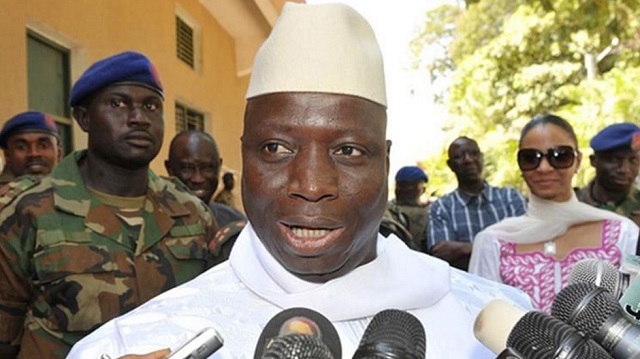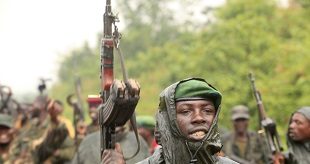
Banjul, Gambia | AFP |
Gambia’s president once said he would govern the country for a billion years if God willed it. But voters may deliver an upset Thursday after years of economic hardship that have pushed thousands of young people to attempt the perilous Mediterranean crossing to Europe.
Yahya Jammeh will face the biggest challenge to his 22-year rule as a united opposition and frustration over the economy dominate the west African nation’s presidential campaign.
Around 880,000 Gambians are expected at the polls from 0800 GMT on Thursday in the tiny former British colony, a narrow sliver of land mostly surrounded by French-speaking Senegal.
Opposition rallies on an unprecedented scale have galvanised normally apathetic sections of society — especially the young — after the government’s repressive tactics backfired badly.
“Gambians, this is the only chance we have to remove him from power, if we fail to do so we’ll bite our fingers (regret it). This is the only chance we have. We should utilise it to the maximum,” opposition leader Adama Barrow said on Friday.
Observers from the European Union and the Economic Community of West African States will not attend the vote. The Independent Electoral Commission declared that it owed “allegiance to nobody but the people of this country”.
African Union observers are expected to oversee it, however.
‘You cannot express your view’
Several top officials of the largest opposition group, the United Democratic Party (UDP), were jailed for holding a peaceful protest in April over the death in custody of youth leader Solo Sandeng.
The incident led all of The Gambia’s opposition parties — except one — to form a coalition around Barrow, a previously unknown businessman.
Barrow’s inexperience has proven to be a virtue, as he is unburdened with party political baggage and is seen as a figurehead for the intellectuals, lawyers and entrepreneurs who would likely join his cabinet if he won.
“(Barrow’s) chances are bright because Gambians suffered a lot in the last five years,” Mbembe Kuyateh, a 25-year-old student, told AFP in the capital city Banjul.
“Politically you cannot express your view, and economically people are dying in the Back Way (migrant route to Europe) due to this economic crisis.”
Gambians make up the largest group per capita of arrivals to Italy by the Mediterranean, according to figures from the International Organization for Migration.
Jammeh said during the campaign that he was best placed to halt the exodus, telling supporters: “Those who do not want our children to end up in refugee camps, they know who to vote for.”
The president, who is seeking a fifth term, still has strong support despite having faced multiple attempts to remove him from power since he became leader in a bloodless coup in 1994 aged just 29.
The former army lieutenant is best known abroad for his claims to have personally developed cures for HIV, infertility and seizures, which he administers personally to citizens.
A devout Muslim, Jammeh is never seen without a Koran and prayer beads in hand, dressed in billowing white robes.
‘I’m better than anyone’
However, his unusual approach to ruling has alienated foreign investors and African leaders alike, despite some impressive progress in the country’s development over the past two decades.
Jammeh has taken The Gambia out of the Commonwealth and moved to leave the International Criminal Court. He also railed against United Nations Secretary General Ban Ki-moon for asking him to investigate deaths in custody.
Jammeh’s security services are regularly accused by the opposition and rights groups of torture, arbitrary detention and intimidation.
For Jammeh’s die-hard supporters, he represents national pride and stability in a region plagued by jihadists and civil strife.
“He brought electricity, good roads… before you couldn’t get a vehicle to go to our village,” explained carpenter Lamin Mendy, 47.
Several supporters gave Libya as an example of what could happen if a longtime leader was removed in the hope of positive change.
Significant progress has been made in the last 20 years in improving literacy and child mortality rates, and the president has in the last year banned child marriage and female genital mutilation.
But 60 percent of the population live in poverty, and a third survive on $1.25 (1.20 euro) or less a day, according to the UN.
Jammeh remains confident of being returned to power, telling a recent rally, “I’m not saying I’m the best, but I’m better than anyone you would ever have in this country”.
 The Independent Uganda: You get the Truth we Pay the Price
The Independent Uganda: You get the Truth we Pay the Price


